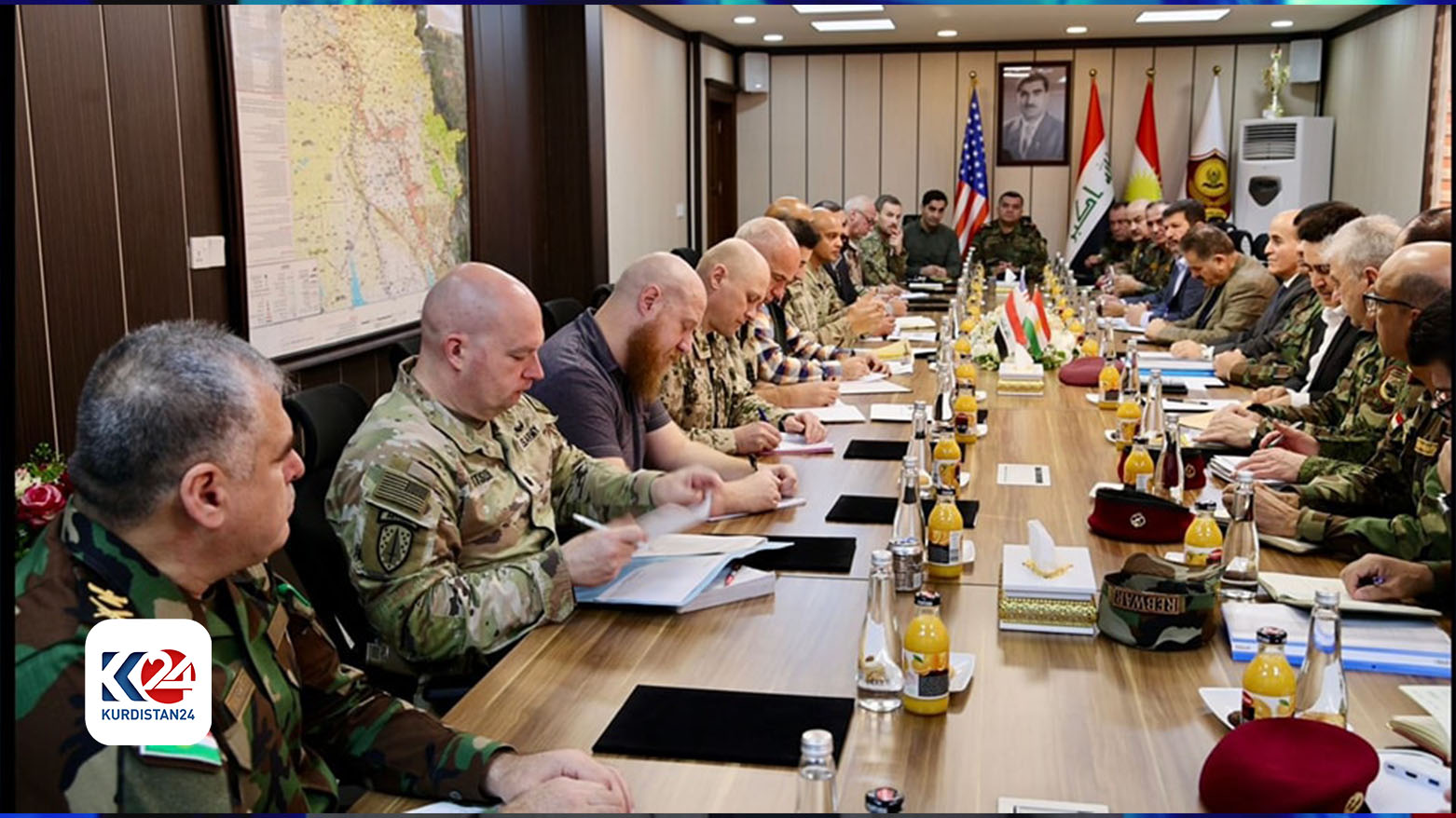Peshmerga, Coalition forces address unification and reform
The Peshmerga Minister stressed the need to accelerate the reform process and work together to make the process of reorganization and unification of forces within the Peshmerga Ministry.

ERBIL (Kurdistan 24) – Shorish Ismail, the recently returned Kurdistan Regional Government’s (KRG) Minister of Peshmerga Affairs, on Sunday met with General Kenneth F. McKenzie, head of the US-led Coalition Senior Advisory Group, and Colonel Mike Gachero, senior military advisor at the US Consulate in Erbil, according to a statement from the Ministry of Peshmerga.
In the presence of the @KRG_MOPE Minister, Deputy Minister, Chief of Staff, Secretary General, the head of 70th, 80th units, the commander of the coalition forces in #IKR, a meeting was held, the @KRG_MOPE reform process & unification of all #Peshmerga forces were discussed. pic.twitter.com/InkK78VtiV
— Ministry of Peshmerga (@KRG_MOPE) December 10, 2023
The Peshmerga Minister stressed the need to accelerate the reform process and work together to make the process of reorganization and unification of forces within the Peshmerga Ministry.
"We are working closely with our Coalition partners to reorganize the forces to form a strong national force and organization with military discipline," the statement read.
The Coalition Senior Advisory Group head reaffirmed that they would support the Peshmerga in reforming and unifying the 70 and 80 units. Unit 70 is associated with the Patriotic Union of Kurdistan (PUK) while its counterpart, Unit 80, is under the Kurdistan Democratic Party (KDP) command.
General McKenzie said that the Coalition forces are closely monitoring the reform process in the Peshmerga Ministry, adding that they want the force to reflect that of a professional fighting force.
The Peshmerga have long been criticized by international partners, viewing its faction-based allegiance as a foundational problem.
More than a thousand Kurdish troops were killed in the fight against ISIS over a tense three-year period beginning in the summer of 2014. While the terror group was pronounced territorially defeated in Iraq in 2017, it has survived by setting up hideouts across the country, launching guerilla warfare and “hit-and-run” style attacks on Kurdish and Iraqi forces.